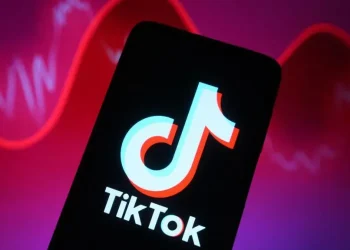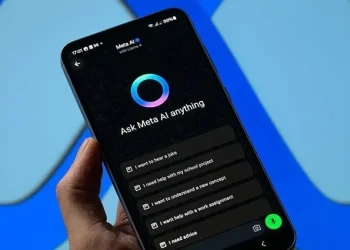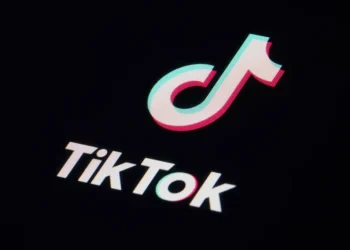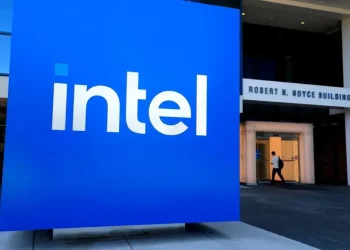Apple’s Big Moment: What’s Next for AI and Its Future?
Apple’s about to answer one of the biggest questions on everyone’s minds: What’s next for its most important products — especially in artificial intelligence?
The tech giant kicks off its annual Worldwide Developers Conference (WWDC) this Monday, and this year, the stakes feel higher than ever. After dipping its toes into AI last year with Apple Intelligence, a suite of AI-powered features for iPhones and other devices, Apple now faces mounting pressure to prove it can compete with AI leaders like Google and OpenAI.
The AI Challenge: Apple’s Moment to Shine—or Struggle
Last year’s introduction of Apple Intelligence was promising but underwhelming in execution. Features like summarizing texts, identifying objects through the camera, erasing unwanted photo elements, and smartly prioritizing notifications showed potential but didn’t really stand out compared to rivals’ AI offerings.
Meanwhile, companies like Google and OpenAI have leapfrogged ahead, unveiling AI that doesn’t just respond but actively executes tasks for users — a whole new level of convenience and intelligence.
Apple’s challenge isn’t just about releasing AI features. It’s about delivering AI experiences that feel truly unique and transformative. So far, that’s been elusive, and many critics feel Apple is playing catch-up.
What to Expect (and What Not to Expect) at WWDC
Don’t expect a flashy new iPhone or Apple Watch debut on Monday. Instead, Apple will focus on software updates that enhance existing devices and hint at where AI might take the company next.
According to tech analyst Carolina Milanesi, WWDC is always interesting because it gives consumers a glimpse of what new experiences their current Apple devices will support. But exactly how much AI will feature in this year’s announcements is still a mystery — Apple has stayed tight-lipped.
One insider report from Bloomberg suggests the AI news might be underwhelming, with no blockbuster features expected. However, Apple could open up its AI models to developers, allowing third-party apps to tap into Apple Intelligence capabilities like text summarization. There’s also talk of an AI-powered battery management tool.
The Competition is Racing Ahead
Google’s recent developer conference was all about AI, showcasing how it’s woven into search, Chrome, Gmail, and even AI-generated videos — some so realistic they raised eyebrows.
Samsung is also making moves, partnering with AI startups to boost its Galaxy phones’ smart features. Motorola recently introduced AI tech in its new Razr flip phone, hinting that AI-powered smartphones might become the norm across brands.
This all puts Apple in a tricky spot. As the world’s second-largest phone maker with tight control over both hardware and software, Apple has a unique advantage to create deeply integrated AI experiences. But the clock is ticking, and many wonder if Apple can catch up before rivals leave it behind.
Why Patience Could Pay Off for Apple
Apple’s CEO Tim Cook has emphasized the company’s commitment to quality over speed. “We need more time to complete our work on these features so they meet our high quality bar,” he said recently. Apple has historically succeeded not by rushing, but by perfecting new tech before popularizing it — think smartwatches and tablets.
Analysts like Dan Ives of Wedbush Securities remain optimistic. He sees huge potential for Apple to monetize AI in the long run, especially given the company’s massive installed user base.
What AI Could Mean for Apple’s Future
The smartphone as we know it might not be around forever. Industry insiders, including Apple exec Eddy Cue, have hinted that in 10 years, people might not need an iPhone at all. New AI-powered devices — like smart glasses with built-in digital assistants — are already in development at Google, Samsung, Meta, and even in partnerships involving Apple veterans.
That doesn’t mean Apple’s current devices are going anywhere soon. In fact, AI could be the secret sauce to encourage iPhone upgrades. Apple Intelligence already runs only on newer models like the iPhone 15 Pro and above. The company has even touted the iPhone 16 as “built for Apple Intelligence,” and early sales data suggest that AI features may be helping boost performance in markets where they’re available.
Siri’s Secret Weapon: Being With You Everywhere
One of Apple’s biggest AI advantages is Siri — and the ecosystem of devices people carry everywhere: iPhones, AirPods, Apple Watches. Unlike Amazon’s Alexa, which mostly lives inside the home, Siri can follow users everywhere, learning from their habits on the go.
“This could make the interaction even more valuable,” Milanesi points out. If Apple gets AI right, Siri’s omnipresence could become a game changer — offering a personalized, always-with-you assistant experience that’s hard to beat.
Bottom Line
Apple’s WWDC this week is more than just a developer event — it’s a moment to show whether Apple can finally stake its claim in the AI race. With competitors zooming ahead, Apple’s cautious but quality-focused approach will be put to the test.
Will Apple surprise us and unleash a breakthrough, or will it continue its quiet, steady march? Either way, the future of AI — and maybe even the smartphone itself — is about to unfold.
This article was rewritten by JournosNews.com based on verified reporting from trusted sources. The content has been independently reviewed, fact-checked, and edited for accuracy, neutrality, tone, and global readability in accordance with Google News and AdSense standards.
All opinions, quotes, or statements from contributors, experts, or sourced organizations do not necessarily reflect the views of JournosNews.com. JournosNews.com maintains full editorial independence from any external funders, sponsors, or organizations.
Stay informed with JournosNews.com — your trusted source for verified global reporting and in-depth analysis. Follow us on Google News, BlueSky, and X for real-time updates.













